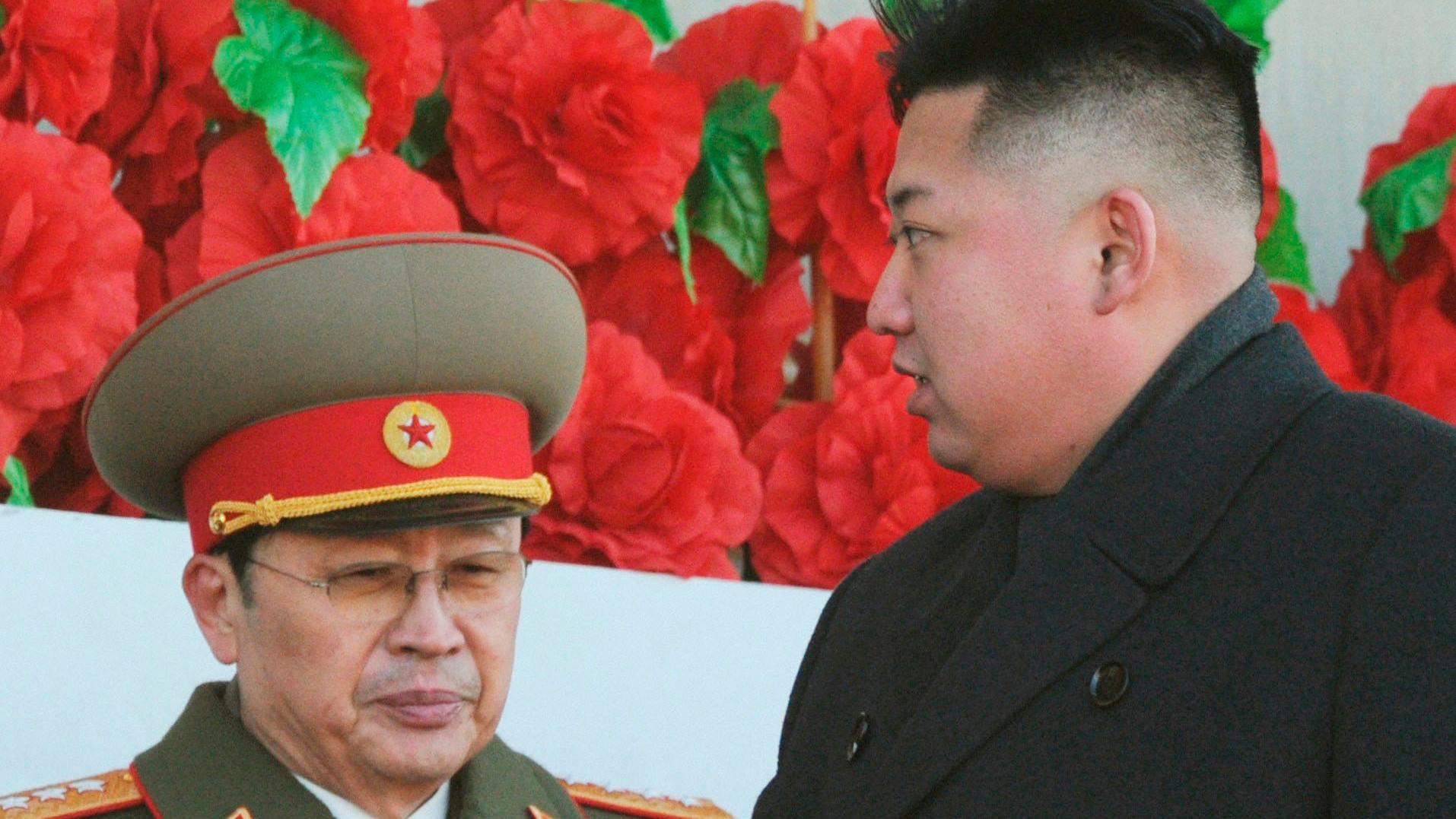What comes next after North Korea has a top official put to death?
Jang Song-thaek stands with his nephew and North Korea’s top leader, Kim Jong-un, right, at a military parade in Pyongyang in February of 2012.
North Korea has been through political purges before. But the reported execution of once-powerful Jang Song Thaek, whose nephew and political protege is top leader Kim Jong Un, adds up to an unprecedented shake-up for the reclusive Stalinist state.
In the last few weeks, the 67-year-old Jang went from being North Korea's number two man, to being hauled out of a Communist Party meeting, stripped of his titles, denounced as "despicable human scum," accused of plotting a coup and executed by machine gun.
North Korean state television announced Jang's execution, calling him "a wicked political careerist."
The babyfaced Kim Jong Un, who is thought to be about 30, took over the reigns of the Democratic People's Republic of Korea — North Korea's official name — after the death of his father in December 2011. The late Kim Jong Il, also known as the "Dear Leader" and himself the son of North Korea's founder Kim Il Sung, managed to keep most signs of competition between political factions at the highest levels of government hidden from public view.
In constrast to past purges, says Sokeel Park, Pyongyang now wants to send a message "to show the North Korean people, and also the outside world, that Kim Jong Un has abosolute power." Park is with the non-governmental group Liberty in North Korea, which is based in Seoul, South Korea, and works with refugees from the North.
"You never had this level of publicity on a purge or an execution," Park said.
And the ripple effects could be big.
"They've accused [Jang] of not just corruption, but factionalism," Park added. "And also trying to create division within the regime."
Park thinks the very public downfall of Jang might have opened the door for North Koreans to think differently about the Kim dynasty, whose mythology has long portrayed the country's top leadership as nothing less than infallible deities.
The state media has portrayed Jang as the head of a treasoneous faction that managed to infiltrate the highest levels of the Party and the military, the two institutions in North Korea that really matter.
This message, Park said, "will give the North Korean people a kind of new vocabulary, a new framework, to talk about problems at the very top level that previously they weren't able to talk about."
Even at the best of times, North Korea's totalitarian, nuclear-armed regime gives Washington and its partners plenty to worry about. But some experts see Jang's execution as a bad sign for the stability of the country.
Reudiger Frank at the University of Vienna, writes that the North Korean economy might be hitting a critical juncture. And, Jasper Beckers suspects that the hardliners in North Korea's military are behind the attack on Jang Song Thaek.
But it might be worth remembering that the DPRK is still the most opaque nation on earth. And speculating about what's happening there and why is always an imprecise science, as Colin Freeman of the Daily Telegraph points out in this video.
